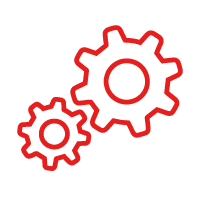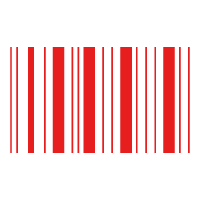-
Industry
SolutionsIndustry
SolutionsTeam with a technology partner that delivers across all industries.
Read more about industry solutions -
Software
SolutionsSoftware
SolutionsLearn how to optimise your business processes to save time and increase productivity.
Read more about software solutions -
Services
-
Products
Products
Feel confident knowing your technology will deliver reliability and longevity as you move forward.
Read more about productsMultifunctionEnhance your operational and financial performance with Toshiba's award-winning range.
Read more about multifunction Software
SoftwareSave money, better manage documents, secure critical information and improve efficiency.
Read more about software Pre-Owned MFDs
Pre-Owned MFDsQuality pre-owned A3 Multi-Function Devices (MFDs) fully refurbished by master manufacturer-trained technicians.
Read more about refurbished MFD Barcode Printer
Barcode PrinterToshiba Auto-ID, Barcode and Label printers are the perfect solution for everyday business.
Read more about barcode printer Printers
PrintersDesigned to deliver power and performance to small businesses and workgroups.
Read more about printers Interactive Flat Panels
Interactive Flat PanelsCreate inspired learning and smarter corporate collaboration
Read more about IFPs
-
Support
Support
We are here to help! Discover and access information about your Toshiba products or simply contact us for priority service.
Read more about support -
Company
Company
Toshiba is the world's most trusted provider of industry-targeted solutions that help increase the value of ideas and information.
Read more about company
Building Stronger Families and Children
by Ben Pronk (Ex SAS leader and specialist in risk, resilience and process improvement)
 Resilience can be thought of as the ability to keep going through tough times and to bounce back from adversity – and it’s never too young to start building it. We got interested in the topic of resilience after watching the very different reactions that our friends had to the stressors of combat. As a result, we developed the Resilience Shield – a model which recognises six different ‘layers’ of resilience. Each of these layers needs attention – and each are as applicable to children and families as they are to special operations soldiers!
Resilience can be thought of as the ability to keep going through tough times and to bounce back from adversity – and it’s never too young to start building it. We got interested in the topic of resilience after watching the very different reactions that our friends had to the stressors of combat. As a result, we developed the Resilience Shield – a model which recognises six different ‘layers’ of resilience. Each of these layers needs attention – and each are as applicable to children and families as they are to special operations soldiers!
The first thing you need to understand is that to build resilience, you need stress! Resilience isn’t the absence of stress, but rather the ability to deal with it – so if you are wrapping your children in cotton wool to ‘protect them from the world’ (helicopter and snowplow parents take note!), you are not helping them to develop resilience.
Instead, look to support them as they face life’s stressors and seek to arm them with appropriate tools. The best thing you can do as a parent is to role model resilient behaviours and make them a part of everyday life in your household. Here are some of our favourite techniques, appropriate to each layer of the Resilience Shield.
The Innate Layer is the baseline level of resilience that we all possess. It’s part nature and part nurture and, importantly, is different for every single human (even siblings!) So don’t try to compare two people’s reactions to the same stressor – they are going to be coming from a very different start point!
There is a big opportunity to help build a child’s Innate Layer, particularly during periods of high neuroplasticity such as adolescence. Foster an environment where it’s safe to fail, encourage children to come up with their own strategies and conduct ‘debriefs’ when things don’t work out as planned – this practice will help identify areas for future improvement and turn a potentially shameful failure into a proactive opportunity to grow!
The Mind Layer consists of all things spiritual and psychological that contribute to resilience. One of our favourite elements of the Mind Layer is gratitude – and one of our favourite gratitude practices is ‘Rose, Thorn, Bud’. At the dinner table, encourage each family member to share a rose (something great that happened to them that day), a thorn (something they may be concerned about) and a bud (something they’re looking forward to). You can even encourage everyone to find their smallest ‘rose’ – tiny little things of beauty or gratitude (like the way sunlight filters through a window, or dewdrops on a leaf). This encourages living in the moment and, as a bonus, you will soon start noticing all the beautiful little happenings going on around you that you might otherwise have hurried past.
The Body Layer is pretty simple: sleep, diet and exercise. And of these, sleep is the MVP. If you and your family have access to a sleep tracking wearable like an Apple Watch or a Fitbit, start tracking your sleep – by quantity and quality. Who can get the most REM sleep (the stage of sleep where your brain repairs itself and new skills are consolidated)? How about deep sleep (the stage where your body rebuilds)?
Another excellent Body Layer technique is breathing. The breath is almost magical in its ability to allow you to tamp the negative effects of your body’s natural ‘fight or flight’ stress reaction. Try ‘Combat Breathing’ – breathe in for four seconds, hold for four, breathe out for four, then hold for four. Incorporate a few rounds of this into your everyday life and practice using it when you feel stressed, anxious, scared or angry (particularly useful for parents of teenagers!)
The Social Layer is all about our connection with each other. We gain resilience from social relationships when we can be absolutely authentic and vulnerable. This is where social media can be problematic – instead of presenting our authentic self, we often find ourselves curating an image of who we’d like to be. Or worse – comparing someone else’s heavily curated life with our own warts-and-all experiences!
It can therefore be extra important for families to seek genuine connection, authenticity and vulnerability. The ‘Mum and Dad Uber service’ can be an excellent time for this. Your children want a ride somewhere and you’ve got a captive audience – the perfect time to put down the phones and chat (the ‘fare’ for the free ride can be a proper conversation!)
The Professional Layer is about what we do to fill our days. For parents, its likely to be work and/or parenting; for children, school. Regardless, the two key aspects are virtuosity (having some level of competence or skill progression in what you do) and purpose (finding meaning in your endeavours). There can be a tendency, however, for our work or school to bleed into our family life – especially in work-from-home situations. To counter that, build in deliberate psychological transitions between activities. Dr Adam Fraser recommends using the ‘Reflect, Rest and Reset’ technique of marking these transitions. Close out your current activity by Reflecting – note any tasks you need to complete or key points you need to capture as a means of bookending the activity. Have a small Rest – a few rounds of Combat Breathing will do the trick here! And then Reset – become the best version of yourself for the next activity you are moving on to.
The final layer is the Adaptation Layer – and you get this one for free! If you are able to develop resilience in yourself and your family by strengthening the layers above, you will be ready to face anything that life throws at you. Good luck!
About Ben Pronk
Ben Pronk is the Managing Partner of Mettle Global, a premium corporate advisory firm specialising in establishing and developing organisational resilience and preparing companies for the volatility and uncertainty of the contemporary world. Ben has deep leadership experience, as a student, teacher and practitioner. His first career was in the Australian Army, where he served for 24 years. The majority of which was in the Special Air Service (SAS) Regiment, where he finished as the Commanding Officer. Ben’s exemplary leadership skills have been recognised with his being awarded a Distinguished Service Cross (DSC) for leadership on operations. Ben was also awarded a Special Operations Commander’s commendation for excellence in command, leadership and management. Ben has significant experience in the design and conduct of training for Leadership, Crisis, Emergency and Business Continuity Management, and has delivered this training for a wide variety of clients across sectors including mining and resources, aviation, government and not-for-profit.
